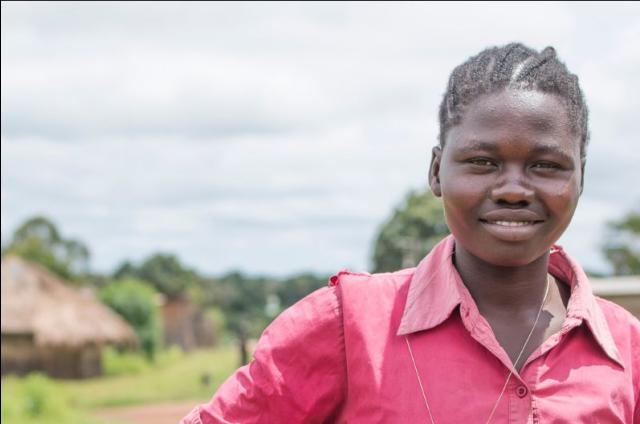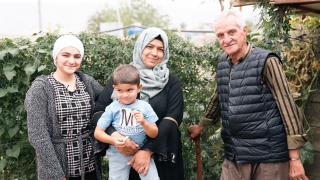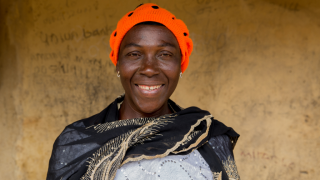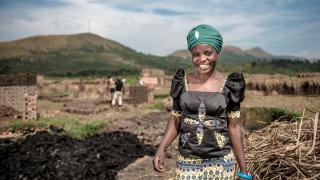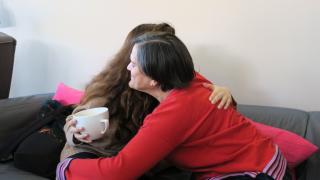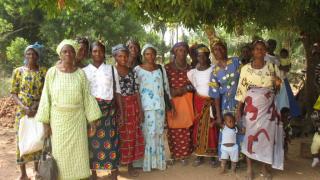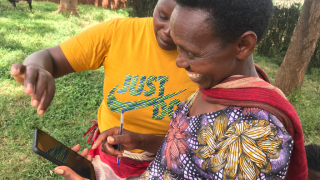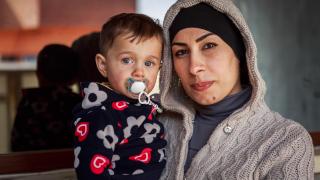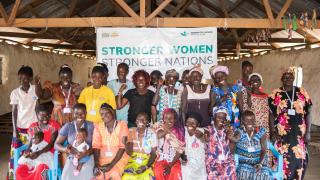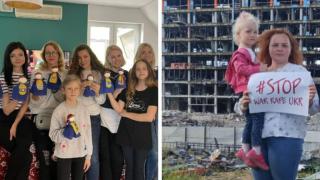From Conflict to Collaboration: A Couple's Transformation
From Conflict to Collaboration: A Couple's Transformation
The journey of two graduates of our programme, Mawa and Jackline, finding peace through our programme
Mawa and Jackline have been married for six years. They live in Wuluturu, Yei River County, South Sudan, with their two children. Their marriage was on the brink of collapse when they were enrolled in our Couples Connect Pilot Programme.
Today, Mawa shares that they now live together in harmony. Here is his story.
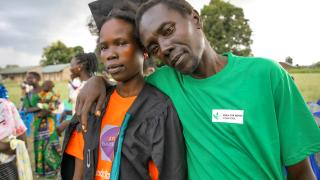
In my culture, being a man means being the head of the family. This title comes with responsibilities but also a lot of privileges.
As the head of my household, I was raised to be the sole provider and decision-maker. Everything I said or did was final. My wife wasn’t supposed to seek financial independence or earn a living; she was meant to stay home and take care of the family.
This belief shaped my expectations when I got married.
To my surprise and frustration, my wife was not the obedient woman I expected. She had a mind of her own and wanted to contribute financially. She would buy things for our home without my input, prepare meals with money I hadn’t given her, and even engage in small businesses and casual labour to make her own money. This independence didn't sit well with me. I was suspicious - where did she get the money? Why was she always away from home? Was she trying to compete with me or, worse, undermine my authority?
My suspicions turned to anger. I verbally insulted her and sometimes became violent. I threw away food she prepared with her own money and restricted her movements.
Our home became a battleground, and we became enemies living under the same roof.
One morning, my wife suggested we join the Couples Connect Programme with Women for Women International.
Initially, I was hesitant. But she mentioned that we might receive financial support if we attended together. Reluctantly, I agreed, motivated only by the prospect of money.
As we participated in the programme, something remarkable happened. We learned about teamwork, sharing responsibilities, effective communication, problem-solving and financial management.
Slowly, I began to understand and appreciate my wife’s efforts.
We started talking again, discussing business, farming and our children. I began supporting her business and we started working together. By the end of the programme, we received some capital, which we invested in her business.
Today, our lives are transformed. I can relax a little, knowing that I don’t have to shoulder every burden alone.
We are a team.
Recently, I developed an illness that affects my ability to walk or stand, making it difficult for me to work. My wife has become the primary breadwinner, contributing up to 70% of our family’s income. I now support her as best I can.
I am grateful to Women for Women International for this life-changing programme and for giving me another chance at love.
I am also grateful to my wife for being strong and persistent.
Without her, I don’t know how I would manage in my current condition.
To all women, I encourage you to support your husbands and not give up on your families. And to the men, I hope you learn from my experience: support your wives, and if you can’t support them, at least don’t stand in their way.
keep reading
The Courage Behind Leila's Smile
subtitle:
In 2018, Leila's village in Damascus, Syria was bombed, killing two of her children and injuring her daughter so badly that she still struggles to walk properly today. Despite their injuries, Leila and her daughter made the difficult to decision to leave their home and seek asylum in the Kurdistan Region of Iraq. In the face of immense grief, Leila knew that she needed to move forward for the sake of her family.
On paper, it might seem as though women's rights are protected in Nigeria. But today, Nigerian women and girls continue to face the reality of widespread discrimination, violence and injustice. To understand why urgent change is needed, read these 10 key facts about women's rights in Nigeria.
My Name is Cinama
subtitle:
After graduating from our 12 month programme in the Democractic Republic of Congo, Cinama went on to start her own brickmaking business. She now shares her knowledge with other women and is looked up to as a role model.
More than one year on from Russia's brutal invasion of Ukraine and our Managing Director, Sara Bowcutt, shared her reflections with Seida Sarić, Director of Žene za Žene International), our sister organisation in Bosnia and Herzegovina, and Kateryna Shukh, Vice President of Bereginja – Mariupol’s Women’s Association.
The UK Government recently published two long-awaited policies, reflecting how collective and sustained advocacy - anchored in women’s experiences - can contribute to small wins in a broader context of a global rollback on women’s rights, no matter how painstaking those advocacy efforts or granular those wins may feel. So, what are those small wins, and are they worth celebrating?
Across the world, women often have less access to technology, mobile phones and the internet compared to men. In fact, the majority of the 2.9 billion people who remain unconnected are women and girls. But evidence suggests that digital inclusion goes hand in hand with economic empowerment and gender equality.
20 years since the war broke out in Iraq, we reflect on the impact of the war on women, our support over the years and hopes for the future.
Women for Women International invests in the power of women living in these communities. As we celebrate Women's History Month, we reflect on the progress of women using their #PowerToChange in their lives and communities for generations to come.
This International Women’s Day, we are heartened to have the support of our passionate partners and global community in creating the changes we want to see in the world. From beauty to dining to fashion and jewellery, there are many ways to invest in the strength of women, while sharing a gift or choosing a special item for yourself.
In the early hours of February 24, 2022, a televised announcement by Russian President Vladmir Putin would ignite a “special military operation” in Ukraine. Citing his objectives of the country’s “demilitarisation” and “denazification”, his words signaled the siege of key Ukrainian cities by Russian military forces and upended the lives of Ukrainian men, women, and children.
In Mariupol, Olga sang pop and folk music with her group, Melody, who made it onto Ukrainian X-Factor and her husband was the Head of Mariupol’s orchestra. When war broke out, Olga made the perilous journey across the border to Poland with her son, Max, and her parents. Her husband stayed behind in Ukraine.
Women's History Month Reading List
subtitle:
This Women's History Month, get inspired by these female authors who are using their #PowerToChange to bring awareness to injustice, inequality and the incredible resilience of women.

